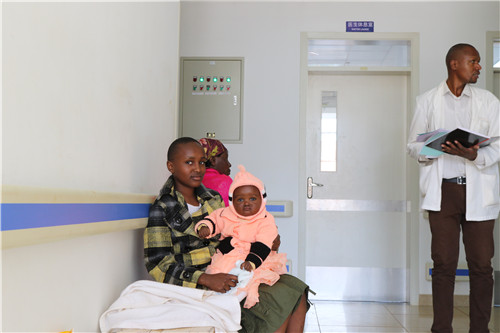Ambassador hails Chinese innovation in Africa's fight against malaria


NAIROBI - The Chinese Ambassador to Comoros has hailed China's medical innovation in a project aimed at driving out malaria from the African country's two islands.
The Indian Ocean archipelago nation is mulling cooperating with China to reach its goal of being malaria-free, after a Chinese-backed anti-malaria project between 2007 and 2013 slashed malaria cases by 98 percent.
Ambassador He Yanjun described the project, which uses a Chinese-developed artemisinin-based combination therapy, as a paragon of China-Africa cooperation that features Chinese originality and the robust cooperation of the two countries.
"I see many Chinese elements in this project. We did not stick to conventional measures previously adopted by some international organizations, but instead adjusted our strategies to fit Comoros' conditions," He said.
The project asked residents on each of Comoros' relatively isolated islands to simultaneously take medicines to flush out malaria parasites. It builds on the idea that mosquitoes are just "vectors" passing parasites from person to person, so if the human source is purged, the mosquitoes will have no bugs to pass.
A deviation from traditional methods of killing mosquitoes and preventing mosquito bites, the novel project however recorded a drastic reduction in malaria cases in Comoros from over 100,000 in 2006 to about 2,000 in 2014.
A team of medical experts from Guangzhou University of Chinese Medicine participated in the Comoros project, assisting in the distribution of China-donated medicines and the build-up of a local team for disease monitoring.
The ambassador praised the Chinese medical practitioners and researchers for their devotion to and empathy with the African people.
"If the Chinese medical practitioners did not care about concerns of the Comoros people, there would not be such great devotion and achievements on their sides," the diplomat said.
"This project is a good demonstration of the China-Africa friendship, partnership and brotherhood, as well as of China's African policy of sincerity, real results, affinity and good faith," He said.
He also gave credit to the efficacy of artemisinin-based medicine, a Chinese innovation. Artemisinin, now at the forefront of the global battle against malaria, was discovered by Chinese scientist Tu Youyou, who won a Nobel Prize in 2015.
He called for greater collaboration in medical training in order to build a strong troop of medical practitioners for African countries.
































